Tunisia attack: Injured Britons flown home by RAF
- Published
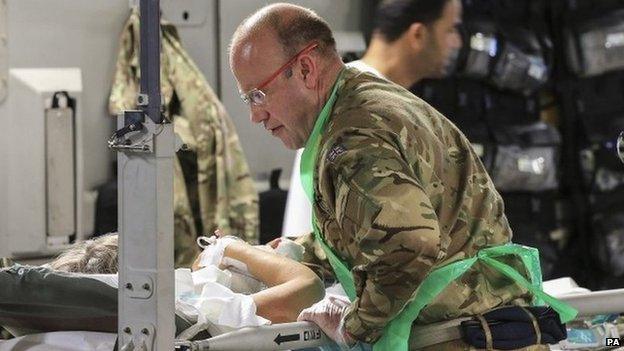
Patients were cared for by medics experienced at bringing injured soldiers back to the UK
Four British tourists seriously injured in the Tunisian beach attack have been flown back to the UK by the RAF.
Twenty-one Britons have been identified as victims, with nine more believed to among the dead, Downing Street said.
All the seriously injured have now left Tunisia and those killed will begin to be repatriated on Wednesday, it added.
Tunisian authorities have arrested several people on suspicion of helping the gunman, who had links to the jihadist group Islamic State (IS).
Downing Street has ruled out a British inquiry into the attack, saying British police would assist the Tunisian investigation.
There is currently a team of 27 people in Tunisia, from the Foreign Office, the Ministry of Defence and the police.
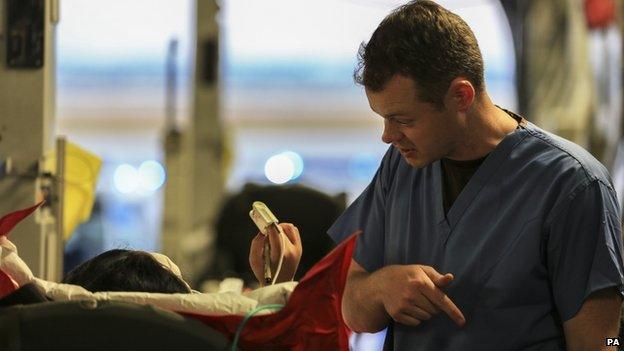
The four injured Britons returned on a specially modified RAF C17 transport plane which had left Brize Norton in Oxfordshire for Tunisia on Monday afternoon.
Medics experienced at bringing injured service personnel back from operations overseas were on board.
The Ministry of Defence said the plane had flown into Birmingham Airport, where one patient was taken off, before it continued to Brize Norton.
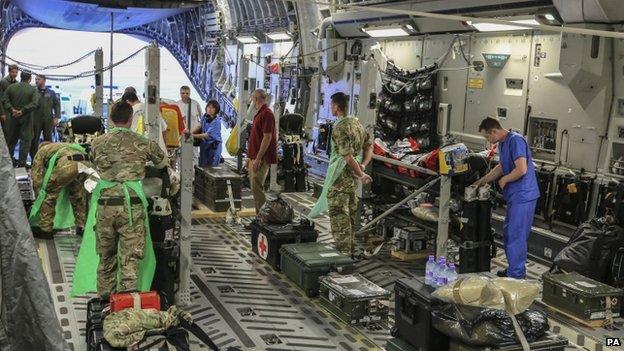
A spokesman for Queen Elizabeth Hospital in Birmingham said the patient arrived at 00:45 BST.
Professor Sir Keith Porter, a senior surgeon at the hospital, said: "I can say at this stage that the patient has life-changing and life-threatening injuries. We hope to release more information about the patient later."
The other injured patients are being treated at John Radcliffe Hospital in Oxford, Derriford Hospital in Plymouth and London's St Mary's Hospital, said Downing Street.
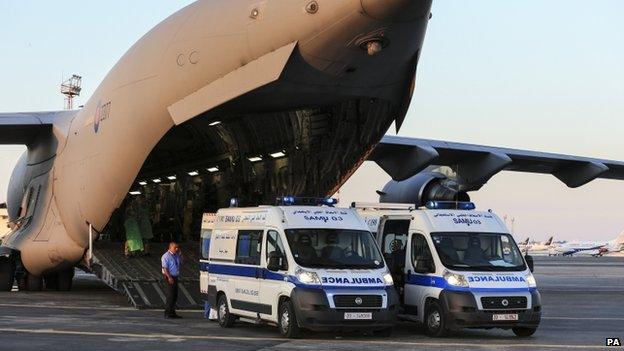
Tunisian ambulances took the four British patients to the RAF C17 aircraft on Monday
In other developments:
Foreign Secretary Philip Hammond is to chair a meeting of the government's Cobra emergency committee on Tuesday afternoon
a major exercise to test how British security services would respond to a terrorist attack is taking place in London
a national minute's silence will take place in the UK on Friday at 12:00 BST, a week after the shooting
flags on government and royal buildings will fly at half-mast
every primary and secondary school in England is to receive guidance, external on how to spot grooming of pupils by extremists

Tunisia beach attack: The victims
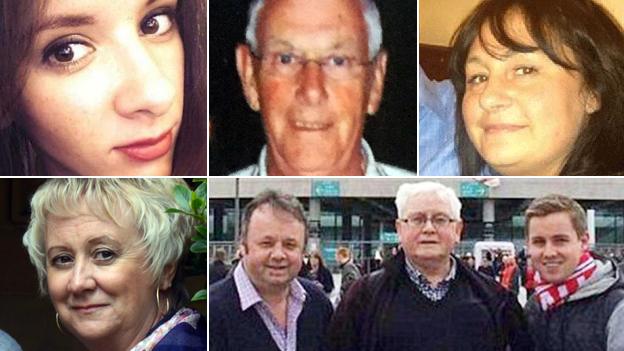
The names of those killed in the attack are slowly emerging. Here's what we know so far about those who lost their lives, as well as those who are injured and missing.
Some survivors have also been speaking out about their ordeal.

In a speech to the Commons on Monday, following a minute's silence held by MPs, Prime Minister David Cameron described the attack as "brutal and sickening".
Also on Monday, Home Secretary Theresa May laid flowers on the beach near Sousse where gunman Seifeddine Rezgui shot people near the Imperial Marhaba and Bellevue hotels.
Tunisian authorities have said they believe the 23-year-old student - who was shot dead by police - acted alone, but had help planning the attack.
Local media reports suggest one of those detained is a flatmate of Rezgui.
British holidaymaker Steve Johnson contradicted the police's account, telling the BBC he saw a second gunman.

Background and analysis
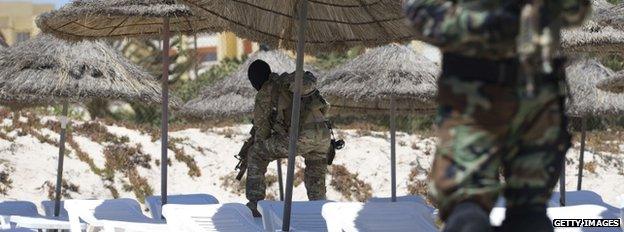
What we know so far
Special report on the Tunisia attack
Profile of gunman Seifeddine Rezgui
Tributes have been paid to victims in England, Wales, Scotland and Northern Ireland

Tributes are continuing to be paid to the British victims, who include three generations of the same family and a husband who died trying to shield his wife.
Most identities of the British victims have not been officially released.
The BBC understands the couple, from Lancashire, were staying at the Hotel Riu Imperial Marhaba when the attack took place.
Angela Evans explains in graphic detail how she survived the Tunisian beach attack
Three Irish people, one Belgian and one German are also thought to be among the 38 people who died. At least 36 people were injured.
Holiday firms Thomson and First Choice announced they had cancelled, external all their holidays to Tunisia due to leave on or before Thursday 9 July.
Customers can receive a full refund or choose an alternative destination free of charge.

'Empty' in Sousse
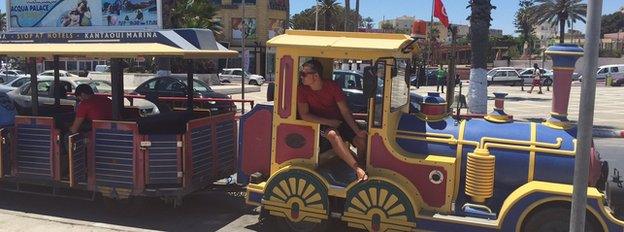
By Toby Brown, BBC News
Forty-five minutes driving around Sousse and there was little sign of the increased security measures.
Worryingly for local Tunisians there was also little sign of the tourists this country so relies on.
At the medina locals took to the shade to watch very few holidaymakers walk past the old statues and walls of the bazaar.
Sousse's beachfront "train" would not be out of place in Hastings or Blackpool - except for the fact it was empty.
The loans to support the tourist industry are doubtless welcome but one wonders if they can sustain this resort for very long.

Tour companies have laid on extra flights and about 10,000 British tourists have flown home from Tunisia since Friday, according to the Association of British Travel Agents.
The Foreign Office has updated its travel advice, external to warn that further terrorist attacks in Tunisia are possible, and urged people to be vigilant.
The Tunisian government has brought in increased security measures, and the country's Interior Minister Mohamed Gharsalli said 1,000 troops would now be deployed to protect beach resorts.
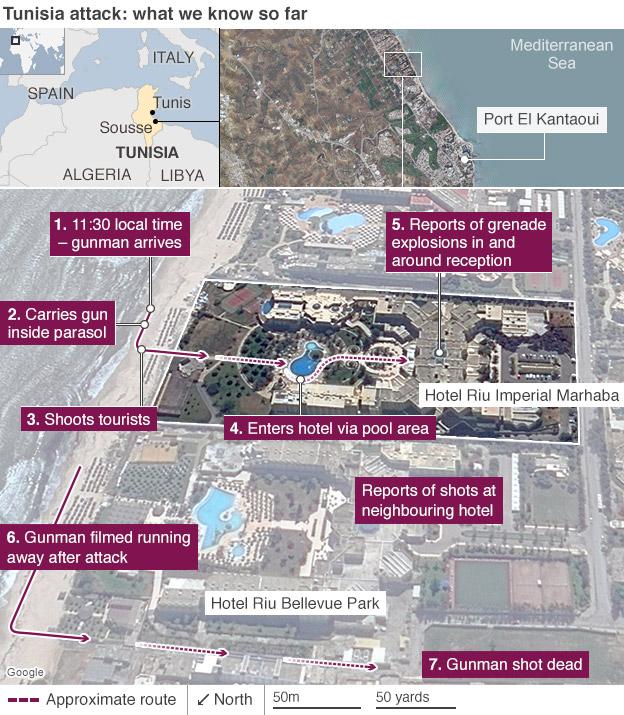
- Published1 February 2017
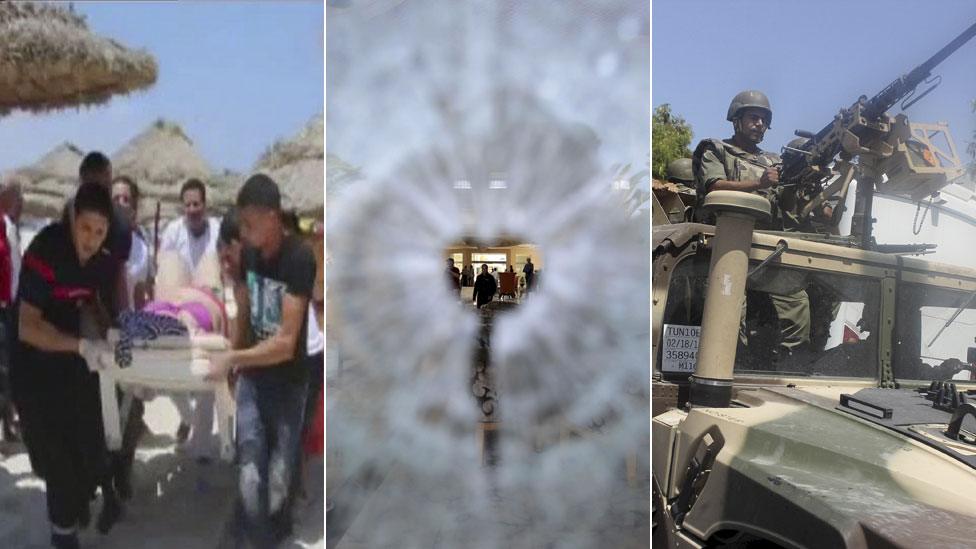
- Published29 June 2015
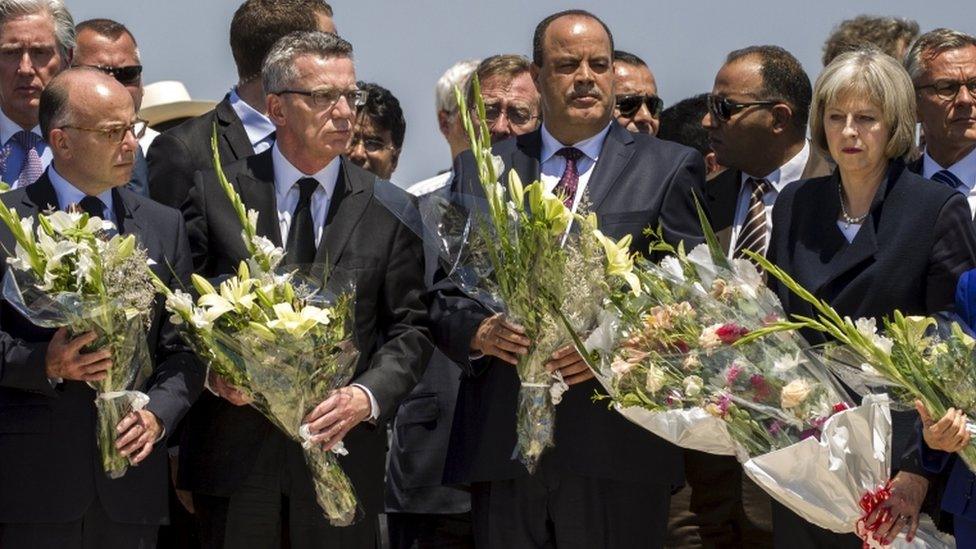
- Published29 February 2016
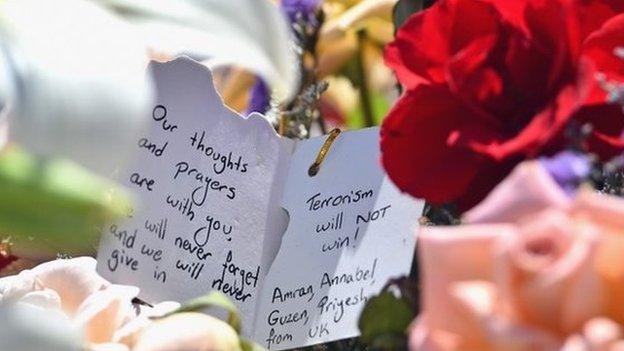
- Published29 June 2015
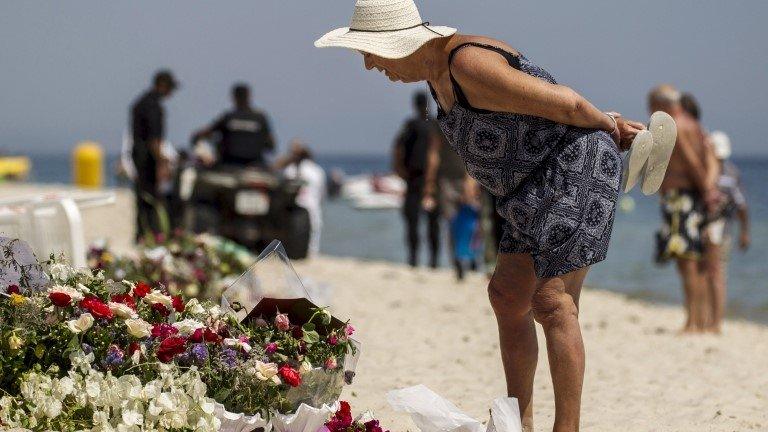
- Published29 June 2015
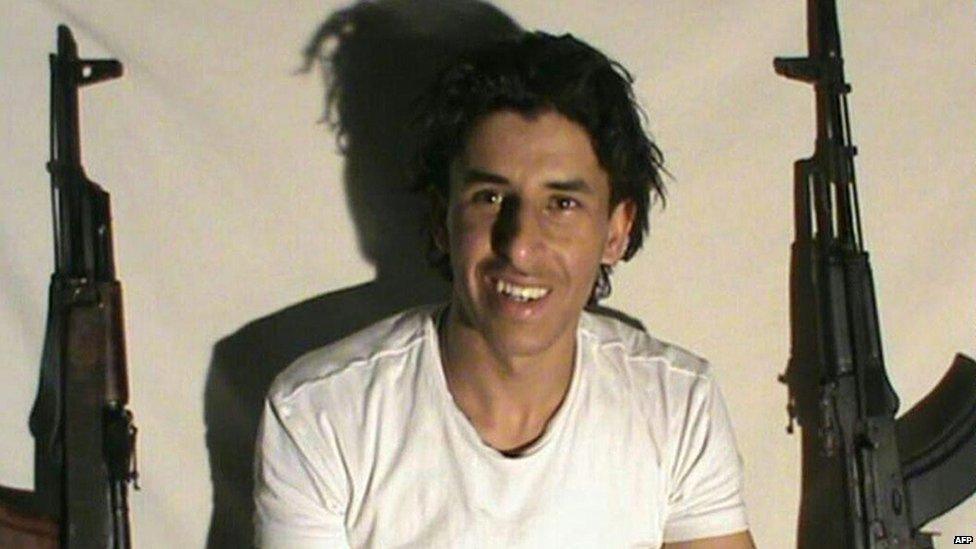
- Published30 June 2015
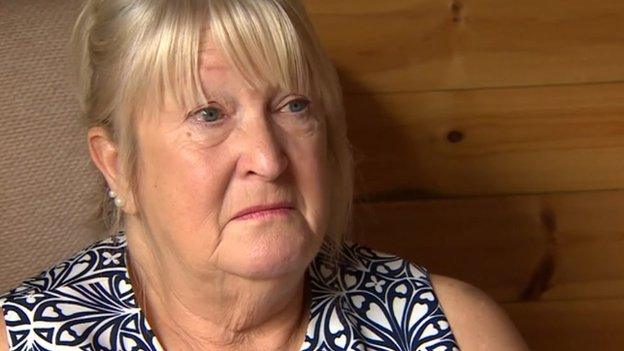
- Published29 June 2015
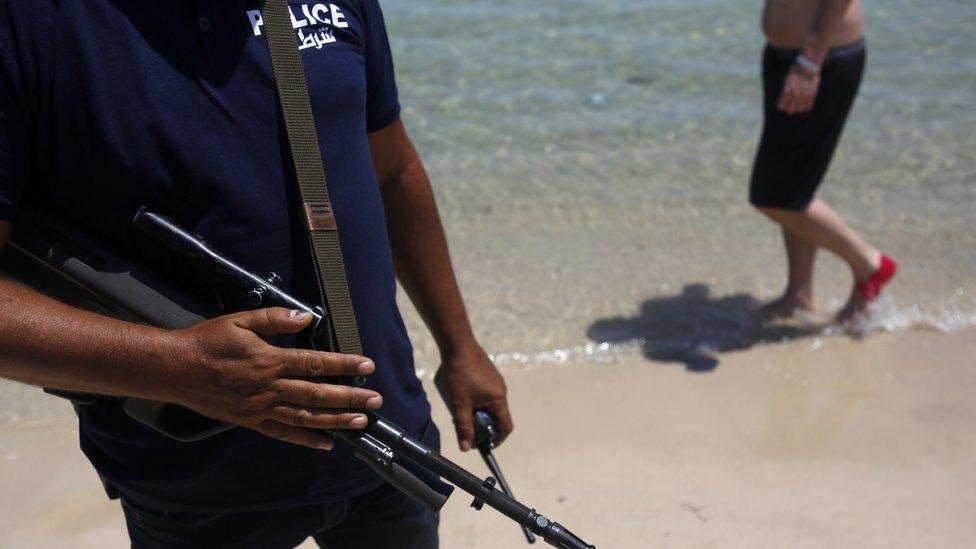
- Published29 June 2015